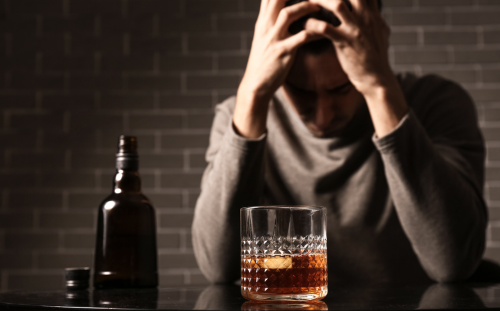As soon as you start recognizing symptoms of depression, it's crucial not to delay seeking help. You should book an appointment with the best psychiatrist in Coimbatore for a consultation as early as possible. Timely intervention can make a significant difference in your recovery.
Why Should You Rely Upon a Psychiatrist for Depression?
Though Psychiatrists and Psychologists work on Psychotherapies to treat depression, the way of approach is different. What is a Psychiatrist? A Psychiatrist treats depression with a medical approach. Here, the Doctor reviews your complete medical history. And checks for whether any medical condition has led to your depression symptoms. For example, Thyroid, Sleep apnea, Obesity, etc.
Whereas, a Psychologist treats depression with a behavioral approach. Here, the Doctor understands your lifestyle/ behavioral issues to know whether it has led to the symptoms of depression. For example, Boozing, Drugs, etc.
The one added advantage of consulting a Psychiatrist for depression is their prescription/ medications. For a person with depression, medication can be a positive sign of recovery. Perhaps, it can be more effective than a counseling session in the first go. Also, the combination of psychotherapy and medication had been the best treatment plan for most depression patients.
Answers to “How Does a Psychiatrist Treat Depression?”
Once a Psychiatrist performs a psychiatric diagnosis, he/she understands your depression symptoms and diagnoses the cause of your depression. Then, the Psychiatrist comes up with a customized depression treatment. And based on the individual’s stage of depression, the weightage to psychotherapy and medications will vary.
(i) Psychotherapy for Depression
The possible psychotherapies for depression include:
- Cognitive behavioral therapy (CBT)
This therapy involves educating or guiding your brain to think and behave in the right and ethical way. Mostly, it is a talking or counseling kind of therapy. It requires two or more sessions. It may take months to achieve recovery or desired outcome.
- Psychodynamic or psychoanalytic therapy
This therapy focuses on confronting past events and understanding the reasons for the present (eventualities or consequences). Rather than a generic behavioral therapy, it relates to mental and emotional cognitive processes.
- Eye movement desensitization and reprocessing (EMDR)
This therapy helps you learn to move your eyes in a specific way. This recovers the patient from past trauma and stressful memories. One EMDR session may take up to 90-100 minutes.
- Dialectical behavioral therapy (DBT)
The two pillars of DBT are acceptance and change. Thus, this therapy enables the affected individuals to accept the past and change the future for good and positivity.
- Systemic therapy
This therapy helps improve your interpersonal & communication ability. Also, develops healthy relationships between people. Undoubtedly, it repairs your past issues with family members, friends, etc.
The benefits of Psychotherapy are:
- Identify the inducers of depression and ignore/ replace them
- Transform from negativity to positivity
- Repair the poor relationships with family and friends
- Change the way he/she sees life
- Escape from thoughts like suicide, loneliness, anger, etc
- Start developing healthy habits and lifestyle
(ii) Medication for Depression (Psychopharmacology)
Antidepressants are the most sought-after medication for people suffering from depression. But, only a Psychiatrist knows when to treat a patient with medication or without medication as the side effects have to be analyzed in specific to the patient’s medical history.
The major types of antidepressants include:
- Tricyclic antidepressants: Nortriptyline, Trimipramine, Protriptyline
- Atypical antidepressants: Bupropion, Trazodone, Mirtazapine
- Serotonin-based inhibitors (SSRIs and SNRIs): Citalopram, Desvenlafaxine, Vilazodone, Levomilnacipran
- Monoamine oxidase inhibitors (MAOIs): Selegiline, Phenelzine, Tranylcypromine
Already undergoing depression medication? Talk to the Psychiatrist in Coimbatore and get to know their serious ill effects.
(iii) Behavioral Changes
For patients with lower depression effect, Therapists or Psychiatrist guide them on everyday behavioral changes like
- Diet/ food habits
- Style of work/ education
- Recreational activities
- Interactive milestones
- Socialization
(iv) Other Psychiatric Treatment Options
- Brain stimulation therapies
- Electroconvulsive therapy
- Electric current is passed to brain cells and affects the neurotransmitters for healthy activation
- Transcranial magnetic stimulation
- Magnetic pulses are passed to brain cells and affect the never cells for better regulation
- Personality development therapies
- Courses or programs to acquire a new skill or develop the existing personality
Conclusion
If you’re looking for a Psychiatrist in Coimbatore to treat your depression, check for Naveen Psychiatry Hospital in Sulur and Thudiyalur. They have more than twenty-five years of experience serving in the field of depression and addiction treatment.
To know about some tips to talk to a psychiatrist read the blog Tips on How to Talk to a Psychiatrist.






